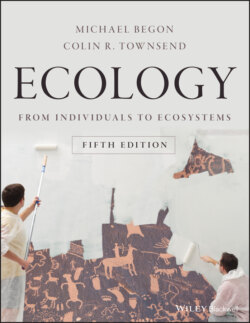Читать книгу Ecology - Michael Begon - Страница 59
APPLICATION 2.7 Coral reefs and mangrove forests may ameliorate the impact of tsunamis
Оглавлениеecosystem services
Ecosystems often provide valuable ecosystem services (see Section 15.4.1) that people use and enjoy. Provisioning services include wild meat and berries, medicinal herbs, fibre products, fuel and drinking water; cultural services include aesthetic fulfillment, education and recreation; regulating services include the ecosystem’s capacity to ameliorate the effects of pollutants or to moderate disasters (such as tsunamis); finally, supporting services, such as primary production and nutrient cycling, underlie all the others (Townsend, 2008).
The devastating tsunamis of 2004 and 2011, caused by earthquakes off Sumatra (9.3 on the Richter scale) and north‐eastern Japan (9.0), took huge tolls in human lives and livelihoods and, hardly surprisingly, also greatly changed near‐shore and coastal ecosystems, both aquatic and terrestrial (e.g. Urabe et al., 2013). More surprising, perhaps, has been the finding that intact coral reefs can absorb some of the wave’s power (Kunkel et al., 2006). According to the American Geophysical Union, illegal coral mining off the south‐west coast of Sri Lanka allowed far more destruction from the 2004 Pacific‐wide tsunami than occurred in nearby areas where coral reefs were intact. It seems that exploitation of a provisioning service (coral crushed to create road surface) resulted in loss of a regulating service. Moreover, muddy shores with intact mangrove forest also seem to have moderated the devastation caused by the 2004 tsunami, both by reducing human mortality inland and by preventing the inland intrusion of saltwater that, where mangroves had been removed, ruined rice and groundnut crops (Kathiresan & Rajendran, 2005). The conservation and restoration of coral reefs and mangrove forests should help protect against these natural catastrophes.
